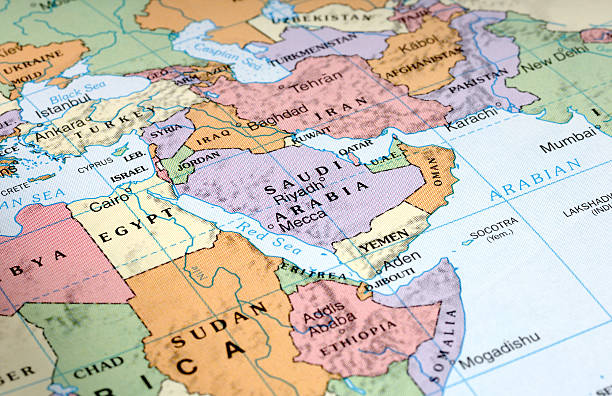
Last week, I watched President Trump’s and Prime Minister Netanyahu’s White House remarks on television. I also read the transcript[i]. President Trump and Prime Minister Netanyahu spoke for 47 minutes. During those 47 minutes there were 71 applause, most of them standing. There were no Palestinian leaders present. Even the Blue and White chairman Benny Gantz was not visible. It was all about President Trump and Prime Minister Netanyahu and their being family.
The whole thing was yet another intervention in Israeli domestic politics before the March 2 Israeli election by “Donald” in favor of “Bibi”, as they like to call each other to emphasize the special bond between them. Mr. Netanyahu mentioned President Truman as the first world leader to recognize the State of Israel after the declaration of independence in 1948 but called Mr. Trump “the greatest friend that Israel has ever had in the White House”.
Summing up the unveiling of the “deal of the century”, officially called “Peace to Prosperity”, the Jerusalem Post editorial of January 31 echoed Prime Minister Netanyahu:
“The “Deal of the Century” is the biggest diplomatic gift an American administration has ever given to the Jewish state since its founding.
“Even without reading its contents, one could see during the unveiling at the White House on Tuesday that this plan was orchestrated in tight cooperation with Israel. President Donald Trump’s gestures and comments during the announcement said it all: This is a pro-Israel plan.”[ii]
The Israelis may be pleased with the “deal of the century”. But they may prefer to reserve judgement on embracing President Trump as their greatest ever friend in the White House.
As I watched the unveiling of the “deal of the century”, like many others, I could not help remembering the ceremony held on the White House lawn on September 13, 1993 following the signing of the Oslo Accords with President Bill Clinton standing between PLO leader Yasser Arafat and Israeli Prime Minister Yitzhak Rabin, the two adversaries shaking hands.
Yes, the Oslo Accords did not lead to lasting peace but the difference between the atmospherics of the two days, the two ceremonies should make everyone sad. These Accords had raised hopes at the time, whereas last Tuesday’s unveiling hardly stirred any international optimism.
“Peace to Prosperity” says:
“Solving this conflict will not solve all the other conflicts in the region. However, resolving the Israeli-Palestinian conflict will remove a pretext used to stoke emotion and justify radical behavior by bad actors and have a positive impact that will increase stability, security and prosperity in the region.”
This is a regrettable disparaging of the potential regional impact of lasting Israeli-Palestinian peace since this will firstly deliver to strongest blow to the distorted ideology of the Islamic State and its likes and secondly, it will put behind decades of confrontation.
During the unveiling of the plan President Trump said, “the ISIS territorial caliphate — 100 percent — not 95 percent, not 99 or any other percent — 100 percent of their caliphate, ISIS, is destroyed. And its savage leader, al-Baghdadi, is now dead.”
Yet, a UN report recently said that Islamic State in Iraq and the Levant (ISIL), following its loss of territory, has begun to reassert itself in both Syrian and Iraq, mounting increasingly bold insurgent attacks, calling and planning for the breakout of ISIL fighters in detention facilities and exploiting weaknesses in the security environment of both countries. And, last Thursday an Iraqi military statement said joint military operations with the US-led coalition to counter the Islamic State group have resumed after a nearly three-week pause.
The Israeli Palestinian conflict is essentially about territory, the status of Jerusalem and refugees. Realistically speaking, the return of the refugees will never happen. As for the rest, David M. Halbfinger and Isabel Kershner of the New York Times wrote on January 29:
“President Trump’s Middle East plan deprives the Palestinians of nearly everything they had been fighting for: East Jerusalem as their national capital, the removal of Jewish settlements on the West Bank, and territorial contiguity and control over their own borders and security that a sovereign state normally enjoys.
“While it was always presumed that such a state would be forged through talks with the Israelis, years of failure, a weak and divided Palestinian leadership, and an Arab world that has largely moved on have all emboldened Mr. Trump and Prime Minister Benjamin Netanyahu of Israel to try to impose a solution of their own.”[iii]
On Saturday, President Mahmoud Abbas said he was cutting all ties, including security coordination, with both Israel and the US. And, the Arab League rejected the Trump peace plan saying that it does not meet the minimum rights and aspirations of the Palestinian people. The Arab League, however, is a divided and inconsequential body. Individual members policies do not always correspond to what is said collectively. Some Arab countries have been going through internal strife, civil war, external meddling nearly for a decade and it has remained a spectator.
In brief, the ebb and flow pattern of the Israeli-Palestinian conflict will continue with the possibility of West Bank annexations looming. As for the four-year freeze regarding new settlements, this also seems to reflect Mr. Trump’s expectations for a second term in office. Whether it will be respected or not, only time will tell.
Mr. Trump’s peace plan says, “A main fault line in the Middle East today is between leaders who want to create economic opportunity and a better life for their peoples, and those who manipulate religion and ideology in order to foment conflict and excuse their failures…”
Perhaps he should have named the leaders in the first category during the unveiling so that they too could get standing applause and the peoples of the region would realize how lucky they are.
—————————————————————————————
[i] https://www.whitehouse.gov/briefings-statements/remarks-president-trump-prime-minister-netanyahu-state-israel-joint-statements/
[ii] https://www.jpost.com/Opinion/Equal-citizens-615997
[iii] https://www.nytimes.com/2020/01/29/world/middleeast/trump-peace-proposal-palestinians.html
Ali Tuygan, Ambassador (Ret’d) and former Undersecretary of the Turkish Foreign Ministry. The article is also published on his blog.









